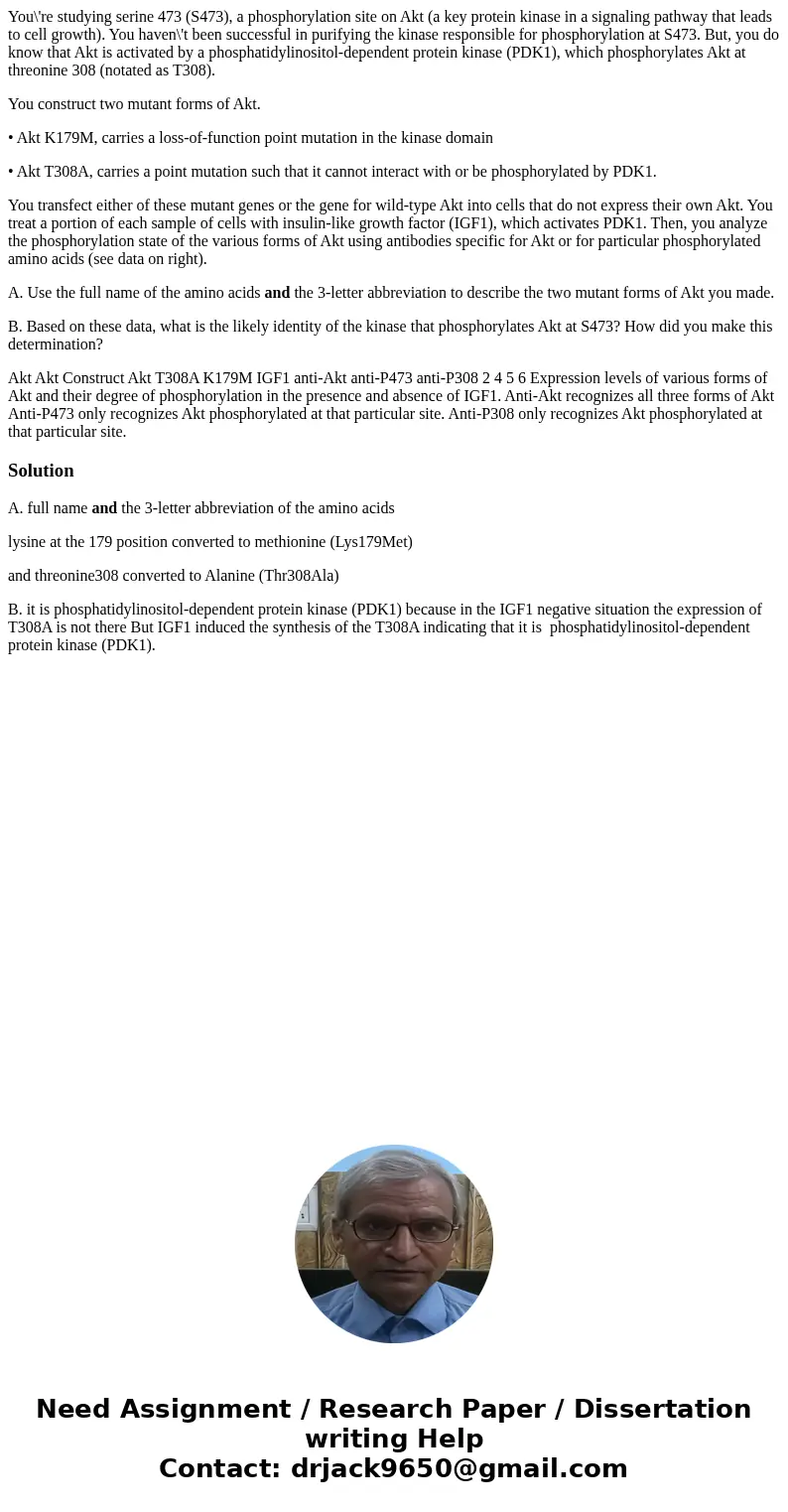Youre studying serine 473 S473 a phosphorylation site on Akt
You\'re studying serine 473 (S473), a phosphorylation site on Akt (a key protein kinase in a signaling pathway that leads to cell growth). You haven\'t been successful in purifying the kinase responsible for phosphorylation at S473. But, you do know that Akt is activated by a phosphatidylinositol-dependent protein kinase (PDK1), which phosphorylates Akt at threonine 308 (notated as T308).
You construct two mutant forms of Akt.
• Akt K179M, carries a loss-of-function point mutation in the kinase domain
• Akt T308A, carries a point mutation such that it cannot interact with or be phosphorylated by PDK1.
You transfect either of these mutant genes or the gene for wild-type Akt into cells that do not express their own Akt. You treat a portion of each sample of cells with insulin-like growth factor (IGF1), which activates PDK1. Then, you analyze the phosphorylation state of the various forms of Akt using antibodies specific for Akt or for particular phosphorylated amino acids (see data on right).
A. Use the full name of the amino acids and the 3-letter abbreviation to describe the two mutant forms of Akt you made.
B. Based on these data, what is the likely identity of the kinase that phosphorylates Akt at S473? How did you make this determination?
Akt Akt Construct Akt T308A K179M IGF1 anti-Akt anti-P473 anti-P308 2 4 5 6 Expression levels of various forms of Akt and their degree of phosphorylation in the presence and absence of IGF1. Anti-Akt recognizes all three forms of Akt Anti-P473 only recognizes Akt phosphorylated at that particular site. Anti-P308 only recognizes Akt phosphorylated at that particular site.Solution
A. full name and the 3-letter abbreviation of the amino acids
lysine at the 179 position converted to methionine (Lys179Met)
and threonine308 converted to Alanine (Thr308Ala)
B. it is phosphatidylinositol-dependent protein kinase (PDK1) because in the IGF1 negative situation the expression of T308A is not there But IGF1 induced the synthesis of the T308A indicating that it is phosphatidylinositol-dependent protein kinase (PDK1).

 Homework Sourse
Homework Sourse